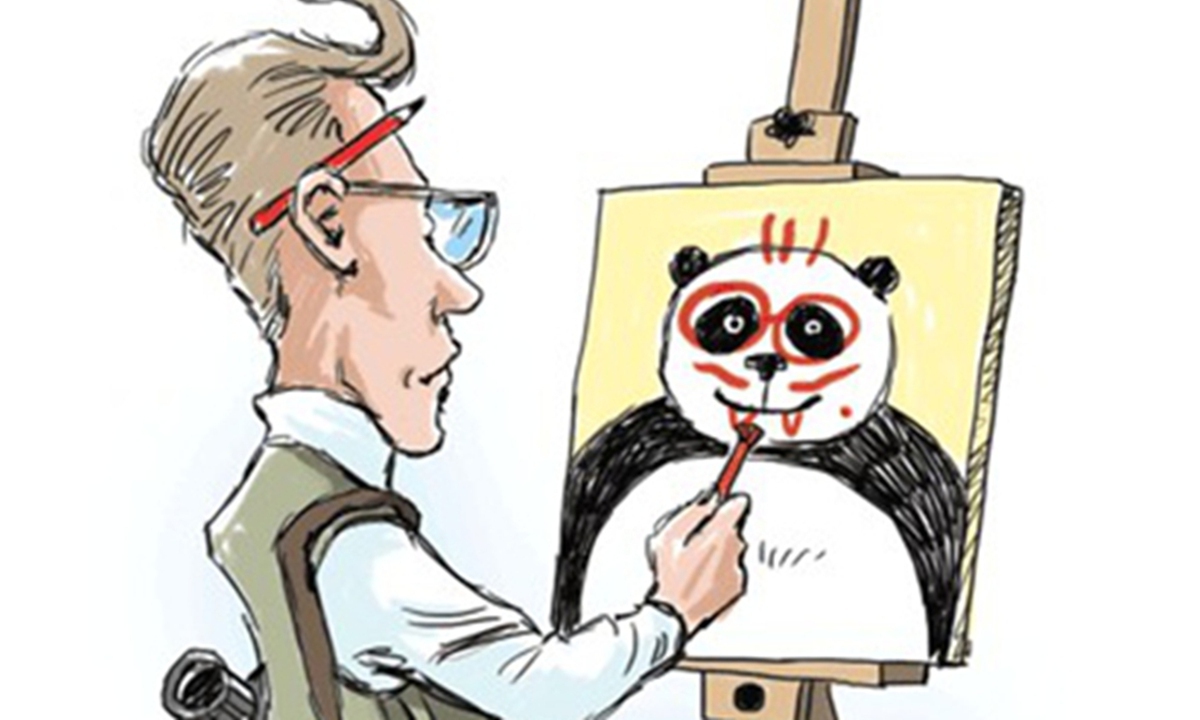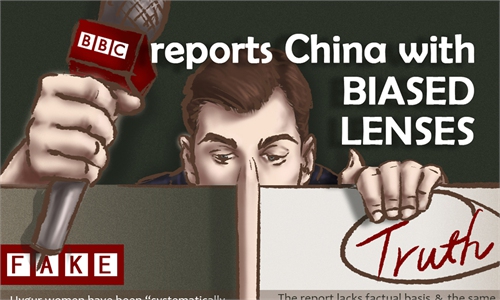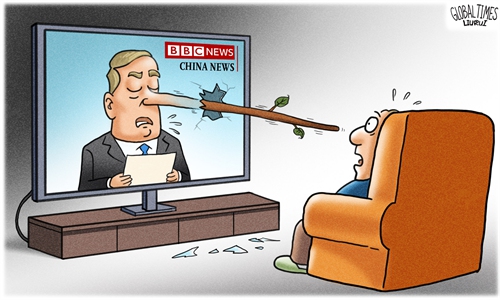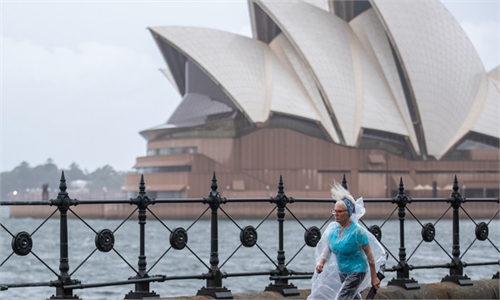
Illustration: Liu Rui/GT
Citing a report set to be released on Wednesday by the International Federation of Journalists, The New York Times published an article entitled "When Covid Hit, China Was Ready to Tell Its Version of the Story," speculating about the nefarious intentions of China's growing media presence across the world. Coincidently, Associated Press ran a piece on Tuesday entitled "Army of fake fans boosts China's messaging on Twitter," alleging that China is using the Western social media as a new front to shape global public opinion.The purpose of such reports and Western discredit of China's state media is caused by the West's wariness of China's rise. In particular, the comment that China's state media must comply with the Communist Party of China has aroused alarm in the West. According to this logic, China's official media is an expression of the will of the Chinese government and has no independence. Plus in recent years, a large number of foreign non-governmental organizations have been promoting the perception that so-called independent media in China were suppressed by the Chinese government. Therefore, the Western society's suppression of China's official media is a result of the intensified conflict between Chinese and Western values, and the result of the incompatibility of the two views of media value.
For a long time, Western media have been accustomed to analyze Chinese narratives in the context of China-US confrontation. In the West, they believe that the government is the subject of media scrutiny because it is viewed as a sort of monster to watch out for. They view China with such deep-rooted concepts too. And this only leads to biased judgments.
There are some similarities between the status of Chinese media in the world and that of China's situation in the world - Chinese media are also treated with mentality that is affected with the "China threat" theory. But it is worth noting that the influence of Chinese media is not yet enough to pose a fundamental challenge to the Western media - the latter is dominant in international public opinion.
As China's strength as the second largest economic power in the world gradually turns into a media influence, Western media are worried that China's economic advantage will turn into a media advantage, creating a counterweight to Western media. That is to say, from the perspective of Western media, the Chinese media is collectively not strong enough to be alarming. But they are quite concerned with the trend of China's rise in this sphere.
There are ebbs and flow with control over the "discourse of power" between Chinese and the Western media. Generally speaking, the discourse power of the Western media is weakening, while the power of the Chinese media is gradually increasing.
As a matter of fact, Western media also comply with the political parties behind them. This compliance is manifested in their obsession with Western social values. In their view, Chinese media is heterogeneous, and they are even considered an extension of the Chinese government. Given the biased mentality of Western media, being objective and neutral has always been a pseudo-proposition for them. In many countries, not only is it illegal to propagate communism, but speaking up for China is also wrong.
Objectively speaking, Western society exaggerating the "Chinese media threat" theory is to alarm Western governments and politicians. China's media may encounter more obstruction and challenges from Western society; however, after withstanding such tests, the discourse power of the Chinese media may actually improve as they have justice on their side.
As a result, to enhance their influence, Chinese media should, on the one hand, avoid telling stories only about China or only in China's interests. They should also tell stories that are in the interests of Chinese people and the rest of the world as a shared community. Facing the containment of the West, Chinese media must face up to the challenges, turn them into driving forces, innovate the ways and forms of public opinion, and promote Chinese public opinion more skillfully.
Yet there will always be "woke" Westerners. Jerry Kowal, an American vlogger, was criticized by the New York Times last year for winning millions of views on a Chinese popular video site by showing true epidemic situation in New York. Although American media said he was China's "running dog," he still insists that American people need to understand China correctly. This phenomenon shows that more and more Westerners have become sober in recent years and that the work of the Chinese media has had some effect. As long as Westerners seek truth from facts and base themselves on the actual situation of the East and the West, they will always have an accurate cognition of China's media and public opinion.
The author is an associate professor at the School of International Relations, Beijing International Studies University, and a visiting scholar at the University of Iowa. opinion@globaltime.com.cn



